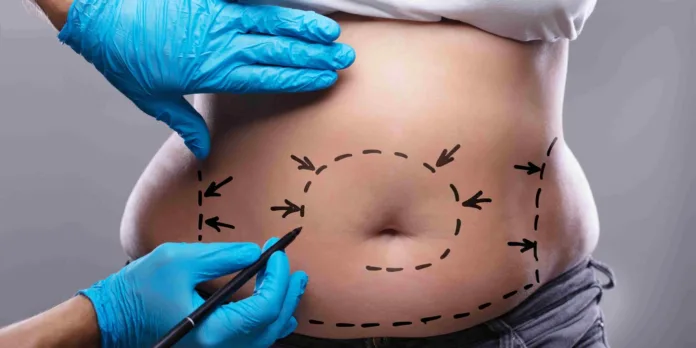Pregnancy, weight fluctuations, aging, and other body changes can lead to excess fat and poor skin elasticity around the abdomen. A tummy tuck, also known as abdominoplasty, is a plastic surgery procedure that removes excess skin and fat to create a flatter, smoother, and firmer midsection. While many people get a tummy tuck for aesthetic reasons, this procedure can also help with various medical conditions to improve your quality of life. Here are the conditions a tummy tuck can treat:
Diastasis Recti
This condition occurs when the left and right abdominal muscles separate, creating a space between them. It mostly happens after pregnancy due to increased pressure on the connective tissue that connects the left and right abdominal muscles. Weight cycling and improper weight lifting may also cause this condition. The connective tissue becomes overstretched, and the space created makes the belly stick out. While sometimes the separation resolves on its own, it requires medical attention in other cases. A tummy tuck plastic surgery helps solve diastasis recti by tightening the abdominal muscles. The plastic surgeon brings together the separated muscles and tightens the gap using sutures. That helps the individual eliminate symptoms like pelvic pain, constipation, and difficulty lifting objects.
Lower Back Pain
Lower back pain is a common condition that makes even the smallest tasks challenging to complete. There are two main ways lower back pain can happen if you have excess skin and fat around your midsection. If there’s considerable weight gain, it can strain your lower back and lead to pain. Your abdominal muscles are also responsible for supporting your back and helping maintain a proper posture. When they become weak and overstretched, they do not provide the necessary support to the spine, potentially leading to lower back pain. A tummy tuck plastic surgery removes the excess skin and fat around your abdomen, reducing the strain on your back. It also tightens the abdominal muscles to strengthen an individual’s core. A stronger core supports the back better and reduces the chances of lower back pain.
Poor Posture
Proper posture matters because it helps prevent neck and back pain. It keeps the body aligned to reduce strain on joints and muscles. The abdominal muscles support the spine to keep your back straight. Excess skin and fat plus increased muscle elasticity around your abdomen can lead to poor posture. Weakened abdominal muscles do not provide the necessary support to the spine, making an individual more prone to hunching. The increased weight around the abdominal area can also make a person hunch to accommodate it. By removing excess fat during a tummy tuck plastic surgery, the weight strain on the back reduces, and the individual does not have to hunch to accommodate the excess weight. Tightening the abdominal muscles also strengthens the core, encouraging proper posture.
Ventral Hernia
Ventral hernias happen when an abdominal tissue or organ pushes through a weak area in the abdominal muscle. The result is a sack or pocket. Some common causes of hernias are obesity, heavy lifting, pregnancy, and persistent coughs. The condition worsens over time and the discomfort gets exacerbated by sneezing, coughing, and lifting heavy items. A qualified plastic surgeon can combine a tummy tuck with a hernia repair to solve this problem. They will first remove any excess skin and fat to create a more contoured midsection. To repair the hernia, they will push the displaced organ or tissue back to its proper position and tighten the weak abdominal muscles.
Stress Urinary Incontinence
Urinary incontinence refers to the inability to control the bladder, causing accidental urine leakage. Stress urinary incontinence occurs when there’s a lot of pressure on the bladder and worsens when a person coughs, sneezes, or exercises. It mostly happens after pregnancy due to separated abdominal muscles. If you struggle with this condition, a tummy tuck plastic surgery can help. The surgeon can tighten the muscles that support the pelvic floor and help reduce pressure on the bladder. The lack of pressure on the bladder promotes proper urinary function and minimizes the chances of accidental urine leakages.
Try a Tummy Tuck Plastic Surgery
Some people get tummy tucks to improve aesthetics, but these procedures can also improve particular medical conditions. When you’re free from issues like diastasis recti, stress urinary incontinence, hernias, and lower back pain, you can live a healthier and more comfortable life. Contact a qualified plastic surgeon to discuss a tummy tuck as a treatment option for your condition.
